Year: 2010
February 22, 2010
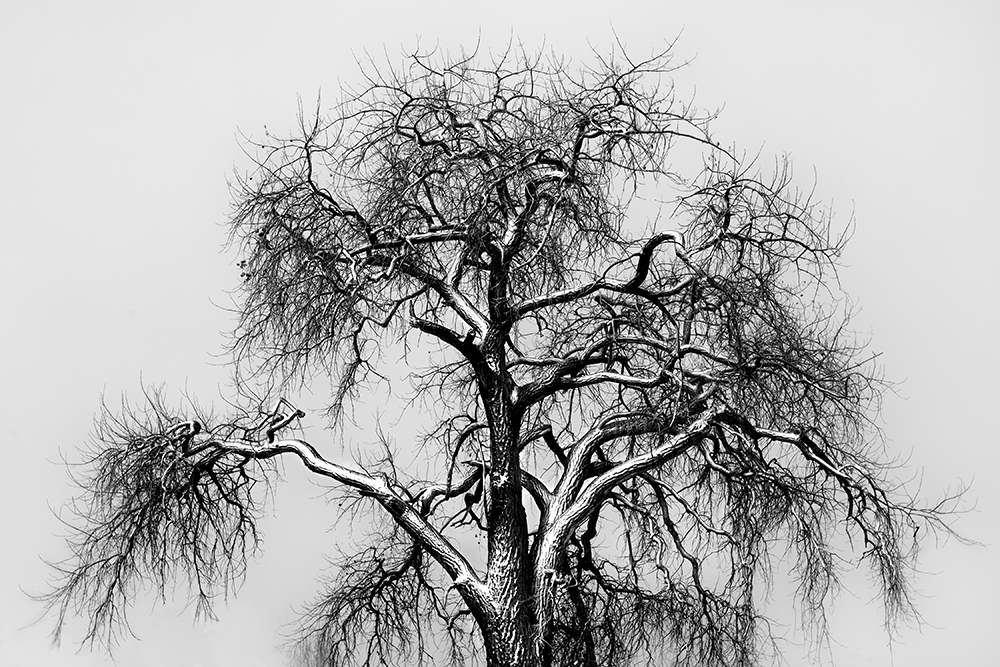

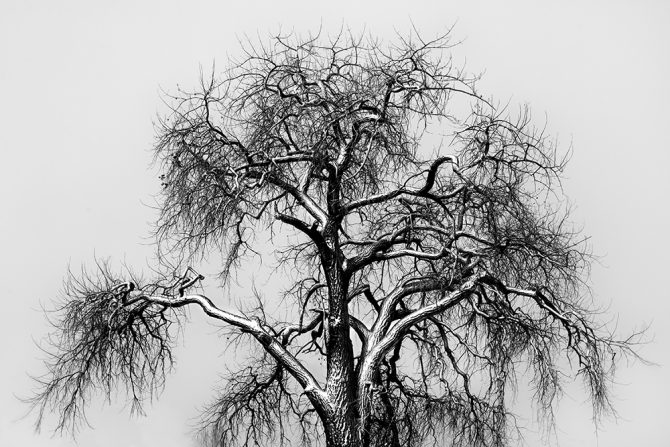
When people learn that my images are created digitally they often ask “do you manipulate your images?” To which I enthusiastically answer “Yes!”
Everything I do starting with how I frame the image, expose and process it, is intended to manipulate that image into alignment with my vision. Rarely, if ever, do I try to recreate what I saw with my eyes. I believe that my vision is the difference between me being a photographer who documents and an artist who creates. When I set up my camera at a scene, I already know what I want that image to look like and rarely does it resemble reality.
Some have suggested that “manipulation” is a “photographic sin” and I’ve heard others say that you shouldn’t do anything in Photoshop that you couldn’t do in the darkroom. I find it odd that we should freeze our progress and limit ourselves to the technology of the 1990’s under some sense of arbitrary purity, why not freeze our techniques to that of the 1890’s? My feeling is that art should be about the art, and not the process.
Many worship Ansel Adams as the master of photographic purity, and one that faithfully reproduced the scene with minimal manipulation. Recently I saw a series of photographs that were taken from the very same spot where Ansel had taken his most famous Yosemite images, but with a point and shoot camera. The images were striking because they so clearly revealed, in that side-by-side comparison, how much Adams manipulated his images. In my opinion that’s why Ansel was an artist, because he didn’t simply document a scene but created images that matched his unique vision. He was a master of “manipulation” and his work certainly did not represent reality.
Should photographers have any limits? I don’t think so; does a painter have limits, or an actor or musician? How would an art advance or a person grow if there was a list of things they could and couldn’t do?
But individually, each one of us will set personal limits, I certainly do. There are things that I just don’t do, not because I consider them wrong but because they do not fit within the vision and style of my work. For example I choose not to “add” to an image such as adding a person or object, but there are others whose work is completely based on adding such as Dominic Rouse. I love what Dominic does with his images and respect his work.
I don’t think there’s a right or wrong with art there shouldn’t be any do’s or don’ts. Ignore the world and it’s experts, find your own vision and go wherever that takes you.
Do I manipulate my images? You bet I do!
Cole
January 24, 2010
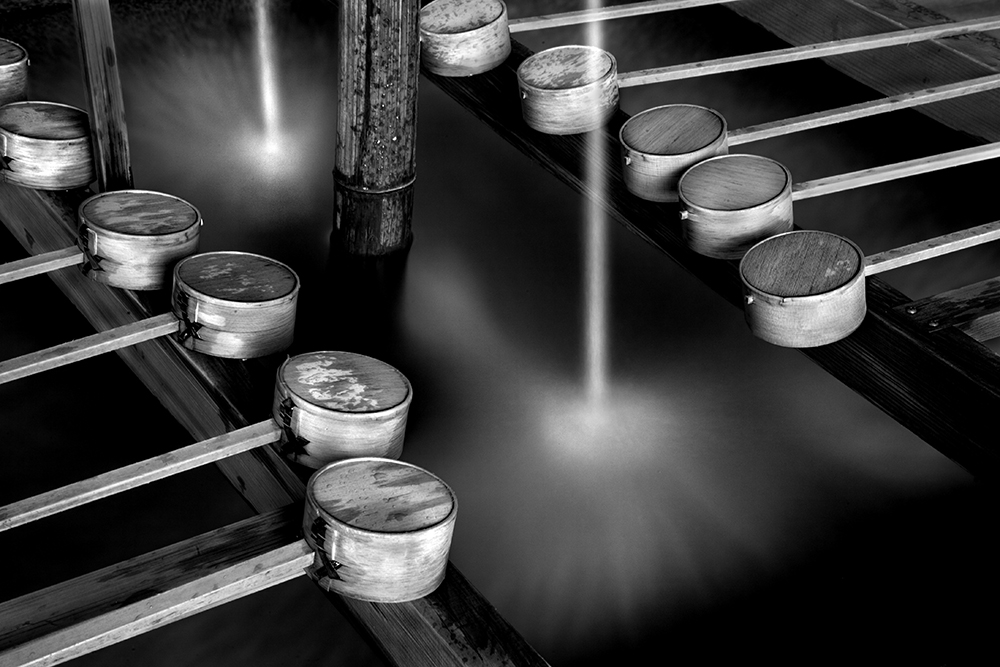
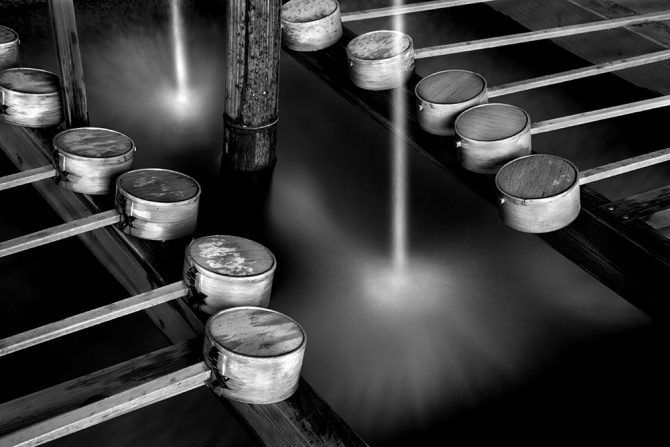
I just read a quote that really struck a chord with me. I wondered what wise old sage had said it; perhaps one of the grand masters of photography or maybe an artist living a Monk-like life? No, these wise words come from the mouth of a mere babe, an NYU student.
“True artists pick their own perspectives – they live and love their way even if they must live and love alone. Praise and applause are not priorities of artists: what matters most is the fulfillment that comes with being oneself.”
Michael William Nebab, NYU Student
It’s incredible when someone can express such a large thought with only a few simple words. Well done Michael.
Do you have a quote that you find meaningful and inspirational? I’d love to hear it.
Cole
January 6, 2010
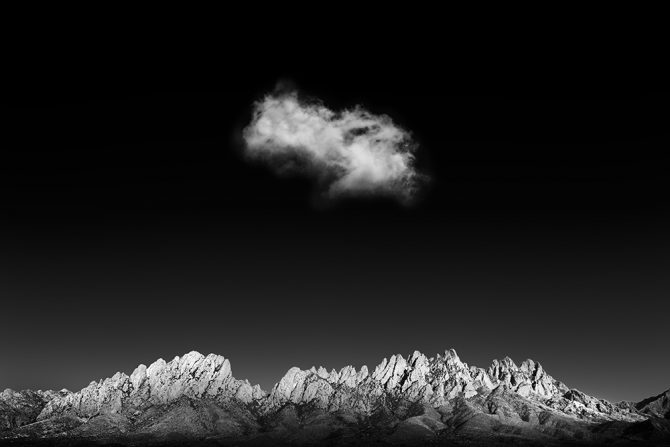
Some of you are familiar with my admittedly odd practice of not studying other photographer’s work. It’s something I’ve been doing for about 2 years now and it’s always been met with curiosity, dismay and sometimes even a little hostility. I mentioned it again in the last blog and it was suggested by my friend and fantastic b&w photographer, Lance Keimig, that this might be a good discussion topic. I agreed and so here we are.
Let me explain why I began this unconventional practice and then I’d love to hear your thoughts on it. However, this might be a very one-sided discussion as I’ve not met many people who agree or appreciate what I’m doing. So if I’m the lone man on this issue, some of you might need to side with me just so we can have a two-way discussion!
To start with I’d like to point out that I’ve never suggested that others should adopt this practice, I’ve just described what I was doing. However I recognize that when one writes publicly, your words can come across as advice.
Several years ago I came to the hard realization that I was not creating with my own vision, but rather I was copying the style and even the images of my revered childhood hero’s. The full impact of this hit home when I was attending a Portfolio Review at the Center in Santa Fe. One of the reviewers said that it appeared I was trying to copy Ansel Adams and Edward Weston’s style. When I responded that I was, because I loved their work, he very bluntly pointed out that Ansel already did Ansel and that no one was going to it better than Ansel. At the time those were very hard words to hear, but over the next year I came to agree with him and it started me on the quest to create with my own vision.
As I analyzed how I was working, I came to the conclusion that when I studied another photographer’s work, I was imprinting their style onto my conscious and subconscious mind. And then when I photographed a scene, I found myself imitating their style rather than seeing it through my own vision. To overcome this tendency I decided to stop looking at the work of other photographer’s, as much as was practically possible.
So for the last two years I’ve tried it; I’ve not read my B&W Magazines, poured over my LensWork or sought out great photography on the web. It’s been hard, and at times I’ve felt like a celibate monk working at a nude beach!
Has it worked? Yes, it has had a positive affect on my art and I feel that my images are increasingly “me” and not just copies of someone else’s work. I’m making progress and when I think of my projects such as The Ghosts of Auschwitz, The Lone Man and the Harbinger series (new image above) I’m pleased with my “direction.”
I don’t expect to continue this practice forever. Once I’ve better developed my vision and have become more disciplined, I’ll return to enjoying black and white photography which has been my first love since the age of 14.
But for me, at this time, and for where I’m at creatively; photographic celibacy is helping!
Cole
P.S. I’ve just had an experience that reinforces my position on this issue. One of my images will be in a new book entitled “Why Photographs Work” by George Barr. Last night we were given a link to review the images chosen and as I looked for mine I came across an image by Brian Kosoff that just stopped me dead in my tracks. It’s entitled “Three Crosses” and it’s the first image on his home page. Do you want to guess where my mind has been all day today as I drove around town? I’ve been looking for telephone poles in patterns so that I can imitate his work!
Bad, bad Cole.
January 1, 2010
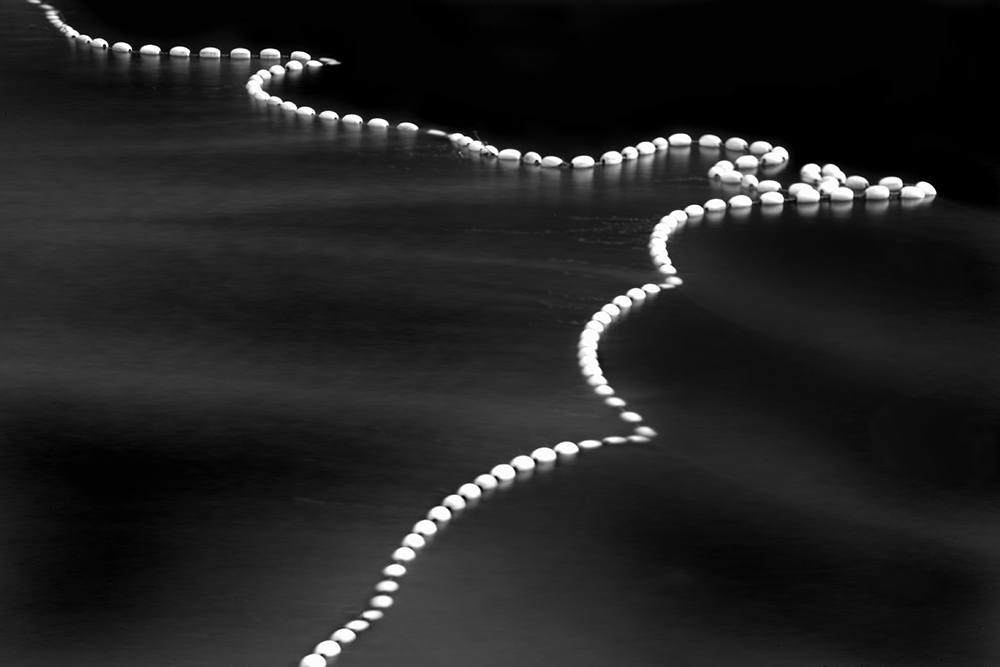
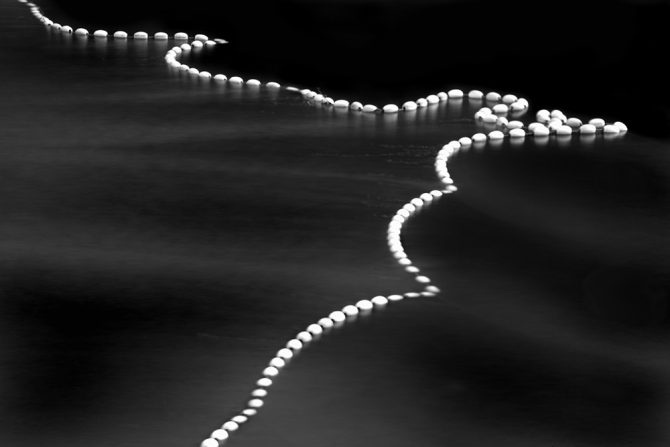
I will think of myself as an artist, not as a photographer.
I will develop my own Vision, not copy the Vision of others.
I will work on seeing with my Vision and not with my eyes.
I will avoid studying the work of other photographers.
I will not let the opinions of others affect how I feel about my work, for good or for bad.
I will focus on the creative process, not equipment or the technical processes.
I will shoot more often, every day if possible.
I will always stop when I see something that interests me, even if that means I’ll be late.
I will try something new and different.
I will not try to define what art is, or what it is not.
I will always encourage others in their creative process and I will appreciate those who encourage me.
I will associate with positive people.
I will get on the road and finish my Harbinger series.
I will start several new projects that excite me.
If I’m working on a project that does not excite me, I will abandon it.
When I find myself in a slump, I will not worry about it but patiently keep working and have faith that it will pass.
I will not compromise my values.
I will believe in myself, and that I can do anything I set my mind to.
I will love what I’m doing.
~
Happy New Year.
Cole
